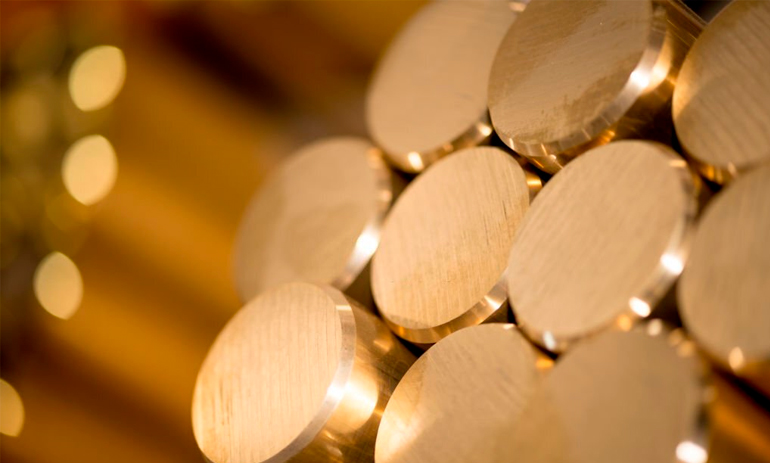
IS 320 HT1
320 HT1 is characterized by favorable torsional properties and general corrosion resistance. Manganese bronze, as a material, demonstrates robust resilience when exposed to dry gases, dilute alkalies, sulfides, most organic solvents, and acids. However, it’s important to note that while 320 HT1 exhibits typical resistance to various chemicals, it’s advisable to avoid contact with substances like ammonia, mercury, and most forms of chlorine gas.
CHEMICAL COMPOSITION
| Elements | Min (%) | Max (%) |
| Cu | 56.00 | 60.00 |
| Pb | 0.20 | 1.50 |
| Sn | 0.20 | 1.00 |
| Fe | 0.20 | 1.25 |
| Al | – | 0.20 |
| Mn | 0.25 | 2.00 |
| Total Others | – | 0.50 |
| Zn | Remainder | |
MECHANICAL PROPERTIES ACCORDING TO IS 320 HT1 (AS PER TEMPER HB)
| Range (mm) | From | To | UTS Min (MPa) | PS Min (MPa) | Elongation Min (%) | Hardness Min | Hardness Max |
| Round (Dia) | 2 | 40 | 480 | – | 12 | – | – |
| 40 | 75 | 460 | – | 15 | – | – | |
| Hex (A/F) | 2 | 40 | 480 | – | 12 | – | – |
| 40 | 70 | 460 | – | 15 | – | – | |
| Square (A/F) | 10 | 40 | 480 | – | 12 | – | – |
| 40 | 60 | 460 | – | 15 | – | – | |
| Rectangle (Thickness) | 10 | 40 | 480 | – | 12 | – | – |
| PHYSICAL PROPERTIES | |
| Melting Point | 940°C |
| Density | 8.42 g/cm³ |
| Specific Heat | 380 J/Kg°K |
| Thermal conductivity (RT) | 88 W/m°K |
| Thermal expansion coefficient (20-200°C) | 20 x 10-6 |
| Electrical conductivity | 18% IACS |
| Electrical Resistivity | 0.082 ohm mm²/m |
| FABRICATION PROPERTIES | |
| Capacity for being Cold formed | Poor |
| Capacity for being Hot worked | Good |
| Machinability Ration | 30% |
| Resistance to Corrosion | Excellent |
| Suitability for soldering | Excellent |

